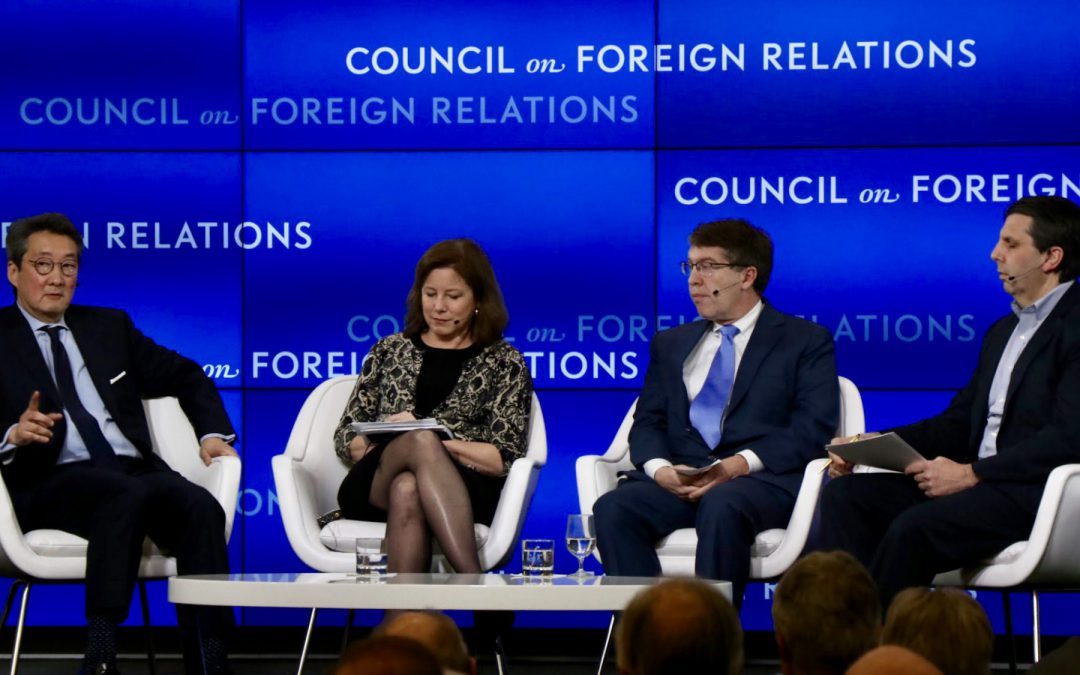WASHINGTON — With a second summit between the United States and North Korea less than a week away, an expert on nuclear proliferation Thursday emphasized the complexity of U.S.-North Korea negotiations and warned that expectations for the talks should be limited.
“We don’t have particularly high hopes,” said Project on Nuclear Issues Director Rebecca Hersman at a Council on Foreign Relations event, “and it certainly seems that the administration is doing a bit of expectations lowering in some of the communications lately.”
Hersman also echoed an intelligence community assessment from last month that North Korea is a significant nuclear power, and she noted that it has access to as many as 60 nuclear weapons and multiple pathways to obtain more.
Her statement and that of Director of National Intelligence Dan Coats in discussing the annual Worldwide Threat Assessment run counter to President Donald Trump’s claim that “there is no longer a Nuclear Threat (sic) from North Korea.”
Just landed – a long trip, but everybody can now feel much safer than the day I took office. There is no longer a Nuclear Threat from North Korea. Meeting with Kim Jong Un was an interesting and very positive experience. North Korea has great potential for the future!
— Donald J. Trump (@realDonaldTrump) June 13, 2018
The summit, which follows a June meeting of Trump and Kim Jong-un in Singapore, will be held in Hanoi, Vietnam. Talks are expected to focus on the details of a possible denuclearization agreement and build on priorities established at the Singapore summit.
According to former President George W. Bush adviser Victor Cha, the Singapore summit also showed the dangers of a second meeting between the two leaders.
“In Singapore, the one tangible deliverable … was the commitment by the president to suspend U.S.-[South Korea] military exercising. I think the concern is that we may see a repeat of that in Hanoi next week,” Cha said. “The concern is that [North Korea] will do very little but the president may give away too much, particularly with regard to our alliance.”
Hersman noted another danger – that it appears the American officials haven’t identified the ultimate goal of negotiations.
“At the moment it seems like the United States is largely negotiating with itself and the administration is largely negotiating internally,” Hersman said.
The extent of North Korean denuclearization is also an open question heading into the Hanoi summit. Conversations between the U.S. and North Korea have been ongoing at various levels since the Singapore summit eight months ago, but according to a senior administration official, no shared definition of denuclearization has yet been reached.
According to the same official, reaching such an understanding will be a high priority at the Hanoi summit, and in a statement Thursday, the White House called for “the complete denuclearization of the Korean peninsula.”
However, experts predict that total denuclearization will not be easily achieved, and it will take work to reconcile U.S. and North Korean definitions of denuclearization.
“It’s not very realistic, and it doesn’t matter where you draw the bar,” Hersman said. “The reality is that we’re going to have to find some space between those extremes and it’s not about just kind of checking the box and saying ‘See? Fully denuclearized.’”
Ultimately though, Cha said that the U.S. perspective on North Korea’s nuclear arsenal is simple.
“We can’t really have peace on the Korean Peninsula, a state of peace on the Korean Peninsula, if they are still harboring nuclear weapons,” he said.

